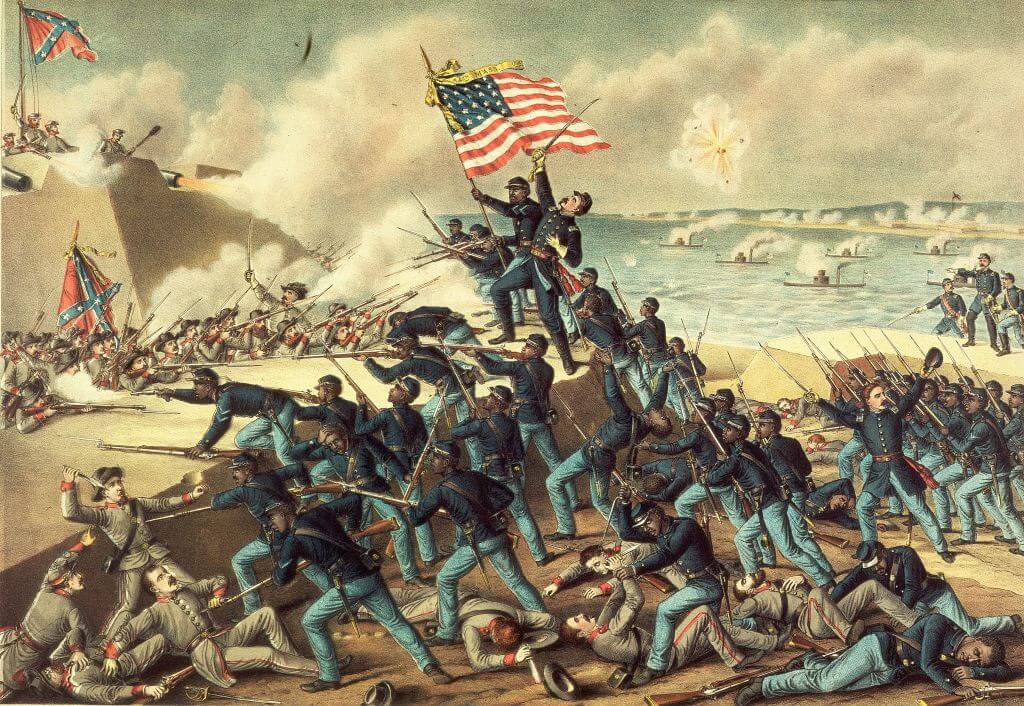Reagan: Big Steps Altered Jewish Politics
Great men, Isaiah Berlin once wrote, can be compared to the hedgehog or the fox. The fox knows many things, which may guide him for good or ill. The hedgehog, in contrast, knows one big thing, and knows it well. Ronald Reagan knew a few big things, and he knew them well: the importance of individual freedom, the evil of communism and its ideology, a distrust of social engineering and statist solutions.
He understood viscerally that Israel was a friend of freedom and a strategic asset in countering Soviet influence in the Middle East. His support was never based on domestic considerations, but rather on his moral and strategic understandings. Here, too, he understood the big truths and acted on them. The little truths sometimes had to fend for themselves. It has been said that some people walk into our lives and make small steps and leave; others make big steps, and we are never the same. Ronald Wilson Reagan was one of those big steppers.
He was a man of great charm and affability. As often noted, he was always ready to tell jokes about himself. Perhaps that is why those who differed with him politically, like Democratic House Speaker Tip O’Neill or Supreme Court Justice Thurgood Marshall, could fall under his personal spell. He had an uncanny ability to take people as they were, and he had a complete lack of social prejudice. It was evident when you heard him, came into contact with him, spoke with him. That is why so many Jewish leaders who did not support him still respected him.
On a personal note, Ronald Reagan was a man of special kindness and generosity. When my first daughter, Sarah, was born, I canceled my plans to attend the 1984 Republican National Convention. After her grandparents flew in and took over the roost, I realized that I could not be of much help at home. I mentioned this to someone, who mentioned it to someone, and then suddenly I got a phone call inviting me to join the president on Air Force One when he flew in for the final days of the convention.
Within the Jewish community, Reagan will be remembered mainly as the man who raised people’s comfort level with Republicans and the GOP. While the 40% or so of the Jewish vote he garnered in 1980 was principally an anti-Carter vote, and his 1984 showing of 31-33% was nothing to write home about, the Reagan years were a time when Jewish Republicans could come out of the closet, as it were. Inspired by him, the Jewish neoconservatives gathered around Commentary magazine found first an intellectual and then a political home in the Republican Party. Others followed. The infrastructure of Republican Jewish politics — the Republican Jewish Coalition — came into being. Republican support for Israel became entrenched. When the Jewish community finally becomes a two-party community (likely to crystallize this November), the Reagan years will be remembered as the time when it all began.
This does not mean there were not tensions at the time between the Reagan administration and the Jewish community. Most of these were in the early days. There was unhappiness over the U.S. condemnation of Israel’s bombing of the Osirak nuclear reactor. There was friction over the administration’s decision to sell Airborne Warning and Control spy planes to Saudi Arabia. There were disputes with Israel over settlements and the peace process. Particularly difficult problems were raised by the 1982 Israeli invasion of Lebanon. But the record is overwhelmingly clear: When faced with options, Reagan invariably chose the one least problematic for Israel. His instinctive feeling that the Jewish state was a friend and ally that should be supported was pervasive in all his decision-making. For example, when he told the late Prime Minister Menachem Begin that Israel had to get out of Beirut, he was choosing the least onerous of the options his advisers put before him.
It was during the Reagan years that the view of Israel as a strategic asset to the United States, rather than as a moral burden, became a lodestar of American policy. The November 1981 memorandum of understanding on strategic cooperation formalized such military cooperation as joint exercises and the vital joint working group. The diplomatic relationship flourished as well. Secretary of State George Shultz, particularly after his disastrous attempt to negotiate a Syrian-Lebanese accord, placed Israel in the center of America’s Middle East policy. I think, too, of Undersecretary of State Lawrence Eagleburger’s yearly diplomatic tour d’horizon with the Israeli Foreign Ministry, in which the level of diplomatic friendship and support reached new heights. One result of that yearly dialogue was American support for Israel’s foreign aid programs in Africa that served mutual foreign policy ends.
Less well known are Reagan’s contributions to Israel’s economic security. Secretary Shultz’s personal contribution to cooling down Israel’s hyperinflation through emergency loans coupled with the stern advice of a joint Israel-U. S. economic working group is nearly forgotten.
Overlooked, too, is Reagan’s personal interest in the 1985 U.S.-Israel Free Trade Agreement. When Begin brought the innovative idea to Reagan, the president already had been briefed by Ed Feulner of the Heritage Foundation, following a trip he and I had taken to Israel. The president scribbled “Great Idea” on the briefing paper. And when Begin arrived to pitch the concept, he found the sale was already made. Reagan’s enthusiasm spurred the bureaucracy into action, and this breakthrough for U. S.-Israel economic relations was negotiated in record time.
Reagan will also be remembered for his abiding support of the cause of Soviet Jewry. Too often, politicians make perfunctory nods toward human rights issues and then go on with the business of realpolitik. The Reagan administration, in contrast, made Soviet Jewry a core issue. When Secretary Shultz met with Kremlin leaders it was not an item to touch on before lunch, but one of the first and longest items on the agenda. And he always named specific names, using his influence time and time again to get specific individuals out of the Soviet Union.
One of the most intense disputes between the Reagan administration and the Jewish community was the president’s visit to the German military cemetery at Bitburg. As everyone around at the time remembers, he had agreed to meet Germany’s chancellor, Helmut Kohl, at a German war cemetery. Bitburg was chosen because it was one of the few cities where there was a U.S. Air Force base that had good relations with the neighboring town. The advance team toured the cemetery while it was snowing, and the S.S. insignias on some graves were obscured. The planned meeting quickly became a cause celebre and a focus of intense concern in the Jewish community. One pollster commented that Jewish ire was off the charts. The Washington representative of the American Jewish Committee, Hyman Bookbinder, argued on television that Jews never would forgive Reagan for this. But this, too, passed. Today, one must explain to those below a certain age the who, what, when and why of Bitburg.
At the time, the White House did not take the Bitburg meeting lightly. Hours were spent searching war archives to see if any Nazi atrocities took place there. There were, I remember, a few hours of excitement when it appeared that Hitler may have visited the cemetery. That, it was felt, would get us off the hook and allow us to cancel the meeting. But alas, the initial reports proved false and, as I told the speech-writing committee, we were charging forward like the Light Brigade at Balaclava. They agreed.
And yet, the fact is that while the Jewish community was focused on the Nazi insignias, the Reagan administration had bigger things in mind — principally keeping America’s nuclear-tipped Pershing missiles in Europe. The geopolitical landscape at the time was delicate. Chancellor Kohl was entering a heated election campaign. His socialist opposition had promised to remove the Pershings from Germany. The Soviets were pushing hard for it. Kohl viewed any changes to Reagan’s schedule as a slap in the face that could jeopardize his re-election. Whether this belief was more than Teutonic obstinacy, no one can say.
Still, the truth is that the Pershings were vital to Western defense strategy. No less important, keeping the Pershings in Western Europe led the Soviets to realize that they could not compete with America in arms technology without restructuring their collectivist economy. For the Soviet leadership the Pershings in Western Europe meant that the guns-vs.-butter decision could no longer be deferred. “For want of a nail…” Benjamin Franklin admonished in Poor Richard’s Almanak. And following that adage, one can trace a direct line from Bitburg to the Pershings to perestroika and thence to the fall of Soviet communism. We could not have known this at that time, of course, but the reasons for not canceling the meeting become clearer in the light of history.
Marshall Breger is a professor of law at the Columbus School of Law at the Catholic University of America, in Washington. He held a variety of positions in the Reagan and Bush administrations from 1982 to 1992, including special assistant to the president, White House liaison to the Jewish community and assistant secretary of labor. He is the author, most recently, of “Public Policy and Social Issues: Jewish Sources and Perspectives” (Praeger Publishers, 2003).















